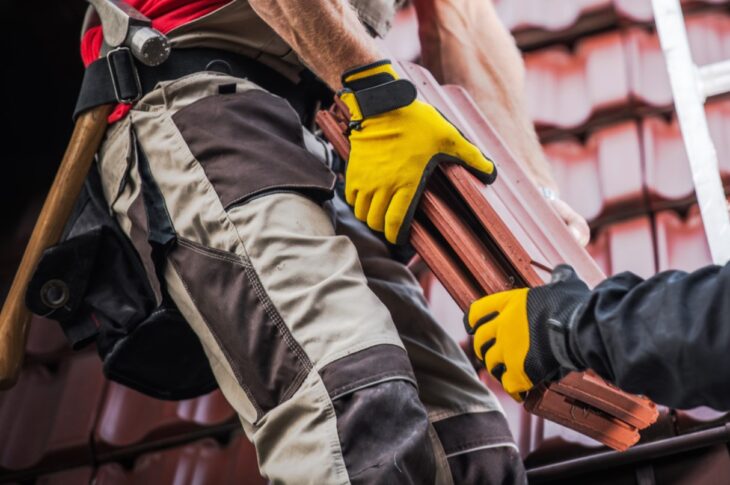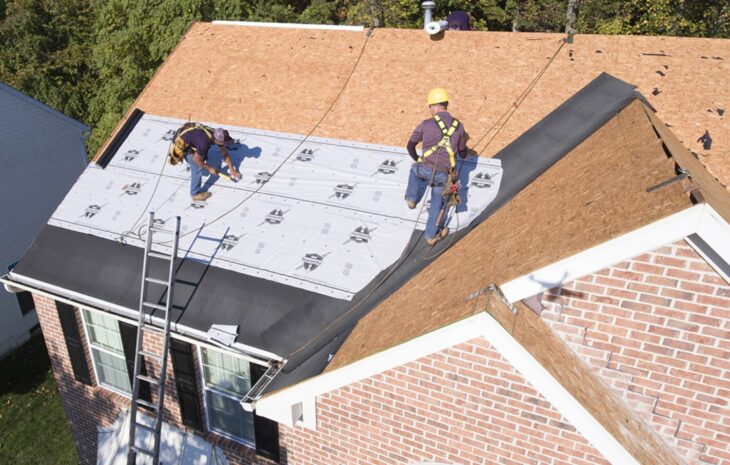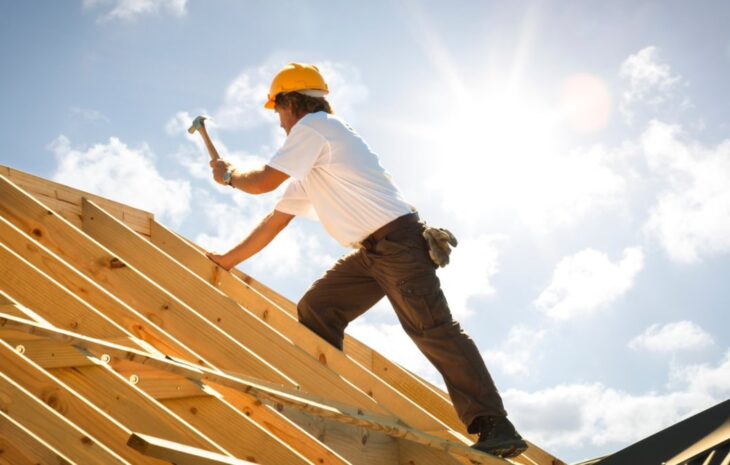Roofing contractors have not been spared from the disruption of business resulting from the COVID-19 global epidemic. Construction-related businesses across all states face new challenges in 2024. Many are having trouble meeting contractual obligations. Are you too?
There’s two common causes:
- Key team members falling victim to the virus.
- Prolonged absence from your business premises due to lock-down measures has put your equipment at risk. Perhaps you suffered a loss as a result of theft and vandalism.
How will you recover from your losses? Let’s take a look at 5 ways that could help your business to get back on track.
Contents
Bright prospects ahead
The National Roofing Contractors Association (NRCA) has good news for the construction industry. In a news report dated 13th January 13, 2024, NRCA states that there has been an increase of 51,000 jobs in the construction industry. This represents a 79.1% recovery of lost jobs since the onset of COVID-19.
The forecast indicates that residential roofing needs are set to rise. The future is looking bright for roofing contracting businesses.

Is there a possibility of recouping your losses?
You will no doubt agree that you have two valuable assets. One is your employees, without whom you will find it difficult to meet your obligations to your customers. The second is the valued equipment that you have invested so heavily in.
What can you do? There is if you made some sound pre-pandemic strategic decisions. However, even if you didn’t, you can do so going forward.
But, what can you do Right Now to protect your roofing business?
4 Things you can do to protect your roofing business
1. Top Priority: Onsite health and safety
Protect your employees by adopting safety measures against accidents and Covid-19 infection.
To protect your business from further loss due to illness and accidents in the workplace, it is prudent to take protective measures.
The topic of safety should appear on the agenda of every staff meeting. Here are 12 tips:
- Personal Protective Equipment (PPE) is important for frontline staff. The basic items necessary are safety glasses, heavy boots, gloves, hard hats, and a well-fitting Personal Fall Arrest System (PFAS).
- No more than 10 people should meet together
- A distance of at least 6 feet should be maintained between staff members
- Only essential personnel should be present at job sites
- Good hygiene is essential. This involves frequent hand-washing and sanitizing.
- The work environment too, should be kept pristine; surfaces such as desktops and doorknobs should be frequently sanitized.
- Ladders require regular inspections to ensure that they are free from defects.
- The operation of forklifts and cranes should be limited to trained and licensed staff
- All hazardous material should be clearly labeled
- The use of safety harnesses should be mandatory
- Regular training is needed on the proper use of the equipment
- Employees who are unwell should be encouraged to stay away from work
So, what other business safety measures can you put in place? What if you are still not able to return to the jobsite? An unforeseen consequence of lockdown and curfews is that building sites are empty and unattended. This creates opportunities for theft and vandalism.
What can you do about it?

2. Top Tip: Protect your equipment
It is a challenge to secure equipment on site; however, there are certain measures you can take such as:
- Ensure that the site has good lighting. It is worth investing in extra lamps and mounting them on tripods to light up the area.
- Install tracking devices in your expensive equipment. This will enable the police to track the pieces down in the event they are stolen.
- Secure your premises with good fencing as this will deter thieves.
- It’s best to have a single point of entry in order to monitor incoming traffic.
- A surveillance system will also boost security. It will also supply law enforcement agents with vital footage should the need arise.
3. Recruit right
Here’s another negative consequence from Covid-19: loss of skilled employees.
The roofing sector suffers from a chronic shortage of dependable, well-trained employees. The Associated General Contractors of America (AGC) has reported a decrease in the number of available workers. Their report said that there was a dire need for skilled workers.
Without qualified staff, the quality of your work may be compromised. This may ultimately affect your bottom line.
Your roofing company may even have had to let your valuable workers go. But now, many construction businesses are looking to rehire employees, only to be faced by their reluctance to return to construction. You would think that they would be happy to get back to work. However, reasons for refusing work offers include: Covid-19 jobsite safety; obligation to care for sick family members; and unemployment benefits.
Even before the pandemic, construction businesses faced the same challenge: difficulty getting skilled workers. Firstly, baby boomers are leaving the workforce, but are not being replaced by trainees. A career in the construction industry isn’t attractive as it once was.
However, with so many skilled workers having been laid off, there are more in the marketplace. You could strengthen your business by seeking them out and replacing or supplementing your workforce.

Source: Sapphire Roofing
Good moves:
- Offer training opportunities to women; they are poorly represented in the industry.
- Recruit veterans that have retired from active duty.
- Create a workplace that focuses on unity and rewards achievement and innovation.
4. Protect your roofing project from unforeseen disaster
Builder’s Risk Insurance coverage is an essential part of your risk management. This is because it provides coverage for buildings under construction. This means that when your project is in progress and equipment or roofing material is stolen from the site, you are protected.
Another specialized type of insurance is Roofing Insurance which is a form of contractor’s liability insurance that covers against the financial costs made by damages done to their client and/or any passers-by. Roofers understand the danger of the job and usually will do anything within their power to protect those on the ground below from falling equipment or debris. Read more on ContractorsLiability about How Roofers Insurance Can Protect Your Business from Losses.
More Builder’s Risk benefits
Builder’s Risk Insurance policies are tailored to suit the needs of the project. For example, you may require that equipment such as scaffolding be included under the cover. Hence it is important to carefully consider your exposures before purchasing the insurance. This will prevent gaps in coverage.
However:
- This insurance will however not cover acts of terrorism, poor planning or workmanship.
- The costs of repairing faulty work are also not covered.

Source: Twitter
Expert advice: Be proactive
COVID-19 has resulted in permanent changes in the construction industry. Roofing companies are not exempted. However, if you adjust the way you do business, you have a better chance of surviving. Take a proactive approach and strengthen your business.
The future of the roofing industry is bright. With the right measures in place, you will be able regain your footing and achieve meaningful growth.
